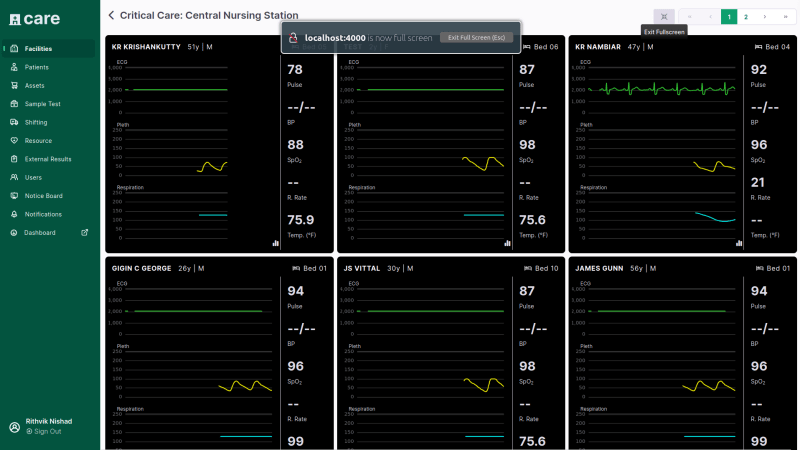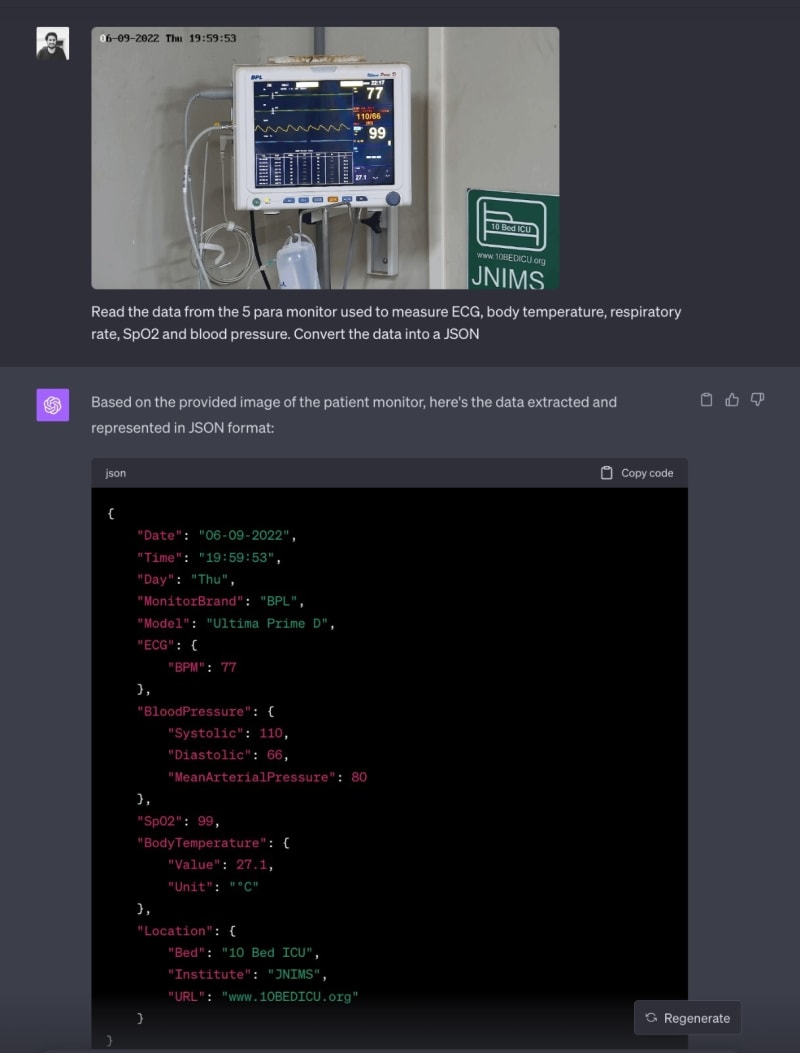At Care, we've made strides in integrating medical devices into our system for seamless data capture. This integration considerably minimizes the manual data entry tasks for nurses.
Our team has developed middleware to translate HL7 data from these devices into a format suitable for Care's requirements. As a result, we have pioneered the creation of digital central nursing stations. These stations can be accessed remotely and are equipped to trigger alerts and dispatch event-based notifications.
However, our journey has been fraught with challenges. The majority of device vendors utilize proprietary data formats, often coupled with outdated data ports. What's more, the lack of documentation for these proprietary data schemas has made the development of open-source adapters a formidable task.
These challenges steered us towards exploring innovative solutions to capture data and further ease the nurses' workload. An idea we found promising involved utilizing the cameras integrated into our system. Given that these cameras have presets to capture clear views of patient monitors for remote assessments by doctors, we believed they might have another crucial application.
Our initial experimentation involved developing a simple service that could remotely adjust the cameras in each patient's room to the monitor preset. It would then take a snapshot and forward it for processing. Our team delved deep into testing multiple open-source image sets of 5-para monitors, combined with various OCR models, to extract the necessary data from these images.
Despite months of research and experimentation, our success was limited. But a breakthrough came unexpectedly when an intern in our team processed the OCR-generated JSON through ChatGPT. Remarkably, ChatGPT could easily identify and extract the required values from the OCR JSON.
Following this discovery, we further explored ChatGPT's capabilities with direct image processing. The results? Astonishingly accurate and efficient. It became evident that we had invested months trying to devise the perfect OCR model and image processing strategies when, in reality, an API call to ChatGPT would suffice.
Even in its experimental phase, Multimodal Generative AI models have showcased their potential to transform our data extraction methodologies. It offers a simplified approach to what were once intricate challenges, opening doors from accurately capturing hourly monitor readings to potentially turning lab report images into structured data. As we journey further into the domain of AI and eagerly await the advent of GPT-V, we remain excited about the forthcoming innovations that promise to elevate and redefine patient care.








Top comments (0)